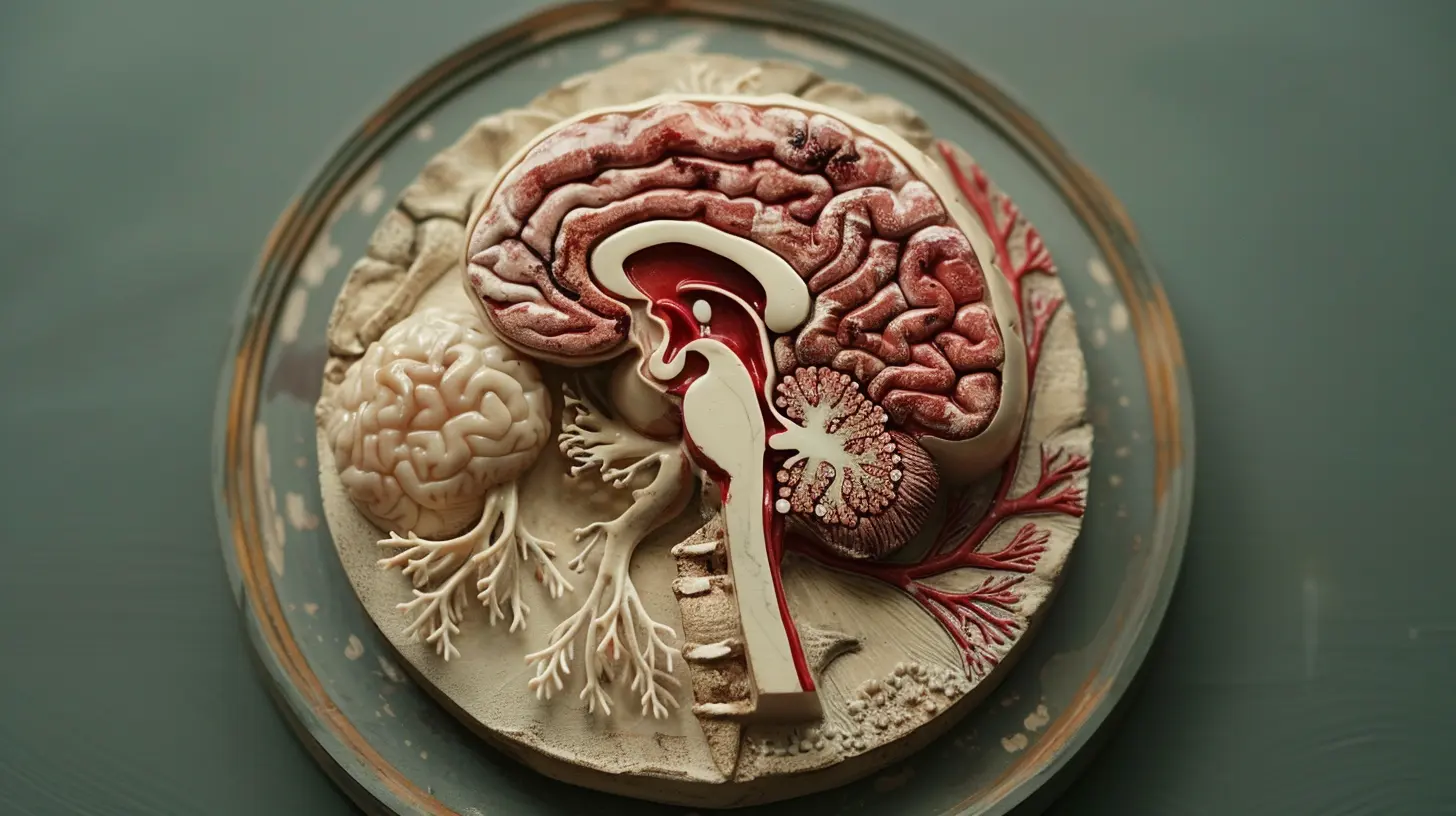The Impact of Sleep on Brain Resilience
4 November 2025
Introduction
Ever feel like your brain is running on fumes after a night of poor sleep? You're not alone. Sleep isn’t just about recharging your body; it plays a crucial role in keeping your brain strong and resilient. From improving memory to protecting against mental decline, quality rest is your brain’s best friend.
But what happens when you don’t get enough sleep? Can the lack of sleep weaken your brain’s ability to bounce back from stress, injury, or even disease? Buckle up because we’re diving deep into the fascinating connection between sleep and brain resilience—and why catching enough Z’s might just be the best thing you can do for your mind.

What Is Brain Resilience?
First things first—what exactly is brain resilience? In simple terms, it's your brain’s ability to adapt and recover from challenges, whether that’s stress, injury, or aging. Think of it like your brain's defense system, ensuring that no matter what life throws your way, your mind stays sharp and strong.A resilient brain helps you:
✅ Handle stress better
✅ Maintain cognitive function as you age
✅ Recover from injuries like concussions
✅ Reduce the risk of mental health disorders
But here’s the catch—brain resilience isn’t just something you’re born with. It’s influenced by lifestyle choices, and sleep is one of the biggest factors that can make or break it.

The Science Behind Sleep and Brain Health
Sleep isn’t just about resting—it’s when your brain does some serious housekeeping. During sleep, your brain clears out toxins, consolidates memories, and replenishes lost energy. Studies show that while we snooze, the brain’s glymphatic system (a fancy term for its waste-clearing process) kicks into high gear, flushing out harmful proteins that can lead to neurodegenerative diseases like Alzheimer’s.🔥 Fact: Chronic sleep deprivation has been directly linked to memory loss, reduced cognitive function, and even an increased risk of dementia.
Now, let’s break down how sleep impacts brain resilience on a deeper level.

How Sleep Builds Brain Resilience
🧠 1. Restores Cognitive Function
Ever noticed how after a good night's sleep, your thoughts feel clearer and your memory sharpens? That’s because sleep restores your cognitive abilities. During deep sleep, your brain strengthens neural connections, making learning and problem-solving easier. On the flip side, lack of sleep leads to brain fog, forgetfulness, and poor decision-making.⚡ 2. Enhances Emotional Stability
Sleep and emotional health go hand in hand. When you don’t get enough rest, your amygdala (the part of your brain responsible for emotions) goes into overdrive, making you more reactive to stress. This means less sleep = higher stress, mood swings, and anxiety. A well-rested brain, however, can regulate emotions better, keeping you calm and collected in the face of challenges.🛡️ 3. Strengthens Brain Plasticity
Brain plasticity is your mind’s ability to adapt and reorganize itself. The more plastic your brain, the better it can recover from injuries, stress, or neurological conditions. Sleep plays a massive role in plasticity by allowing neurons to repair and rewire, ensuring your brain stays agile and adaptable.🧹 4. Clears Out Neurotoxins
Remember the glymphatic system we mentioned earlier? Without proper sleep, your brain struggles to flush out harmful waste, leading to a buildup of toxins that contribute to cognitive decline. Think of sleep as your brain’s overnight detox, ensuring it’s fresh and ready for the next day.🏃 5. Reduces Risk of Neurodegenerative Diseases
Lack of sleep has been linked to a higher risk of Alzheimer’s, Parkinson’s, and other neurodegenerative diseases. This is because sleep deprivation accelerates the buildup of beta-amyloid plaques, which are directly associated with Alzheimer’s. Getting quality sleep regularly can slow down these processes, protecting your brain in the long run.
What Happens When You Don’t Get Enough Sleep?
If you’re constantly skimping on sleep, you’re putting your brain in survival mode. Here’s what happens when your brain doesn’t get the rest it needs:❌ Impaired Memory – Struggling to remember things? Lack of sleep affects your hippocampus, the area responsible for memory formation.
❌ Increased Stress & Anxiety – Poor sleep fuels stress hormones like cortisol, making you feel more anxious and irritable.
❌ Weakened Decision-Making – Your prefrontal cortex (responsible for rational thinking) becomes sluggish without proper rest.
❌ Higher Risk of Mental Illness – Sleep disturbances have been linked to depression, bipolar disorder, and even schizophrenia.
❌ Faster Cognitive Decline – Chronic sleep deprivation speeds up brain aging, increasing your chances of developing dementia.
Simply put, sleeping less than 6 hours a night consistently can seriously affect your brain’s ability to function properly.
How to Improve Sleep for a Stronger Brain
Now that you know how crucial sleep is for brain resilience, let’s talk about how to improve your sleep quality. Here are some science-backed tips to help you get better rest:🌙 1. Stick to a Sleep Schedule
Going to bed and waking up at the same time every day helps regulate your body’s internal clock, making it easier to fall asleep.📵 2. Cut Back on Screens Before Bed
Blue light from phones and laptops messes with your melatonin production (the sleep hormone). Try to unplug an hour before bedtime.☕ 3. Watch Your Caffeine Intake
Drinking coffee late in the day? Caffeine stays in your system for hours, so avoid it at least 6 hours before bed.🏋️♂️ 4. Exercise Regularly
Physical activity boosts sleep quality, but try to avoid intense workouts too close to bedtime.🌡️ 5. Create a Sleep-Friendly Environment
Keep your bedroom cool, dark, and quiet. Invest in a comfy mattress and blackout curtains for optimal rest.🛑 6. Avoid Heavy Meals Before Bed
Eating a big meal late at night can mess with digestion and keep you awake longer.🧘 7. Try Relaxation Techniques
Meditation, deep breathing, or reading before bed can calm your mind and prepare your brain for sleep.Final Thoughts
Sleep isn’t just a luxury—it’s a necessity for brain resilience. Without it, your brain struggles to keep up, leading to cognitive decline, emotional instability, and even serious health risks. But by making sleep a priority, you’re giving your brain the best shot at staying strong, adaptable, and healthy for years to come.So, next time you think about pulling an all-nighter or cutting back on sleep, remember: a well-rested brain is a resilient brain. Now, go catch those Z’s!
all images in this post were generated using AI tools
Category:
Brain HealthAuthor:

Angelo McGillivray
Discussion
rate this article
1 comments
Wesley King
Sleep is not just rest; it's the foundation of brain resilience! Prioritizing quality sleep unlocks our cognitive potential, enhances creativity, and fortifies our mental health. Embrace the power of rest!
November 5, 2025 at 5:01 PM

Angelo McGillivray
Absolutely! Quality sleep is essential for cognitive function, creativity, and mental health. Prioritizing it truly unlocks our brain's potential. Thank you for highlighting this important aspect!


